FDA Update Regarding Policies for "Certain Vape Shops"
Editors Note: Below is an update published today by the FDA regarding policies for vape shops.
Today FDA issued Interpretation of and Compliance Policy for Certain Label Requirement; Applicability of Certain Federal Food, Drug, and Cosmetic Act Requirements to Vape Shops, a draft guidance intended, among other things, to assist retailers who sell newly-regulated tobacco products such as e-cigarettes, e-liquids, vaporizers and other electronic nicotine delivery systems (ENDS), as well as their component and parts. The draft guidance is available for public comment through February 16, 2017.
As explained in FDA’s final deeming rule, which went into effect on August 8, 2016, vape shops that create or modify these products are considered manufacturers under the FD&C Act and, therefore, are responsible for complying with the requirements under the law that apply to manufacturers. Five of these requirements include submitting applications for products for premarket authorization, registering their establishments and listing their products, submitting certain health documents, reporting ingredient lists, and reporting harmful and potentially harmful constituents (HPHCs). Today’s draft guidance explains certain activities for which vape shops are considered manufacturers under the FD&C Act, and includes a compliance policy for certain activities for which FDA does not intend to enforce these requirements.
The guidance explains that FDA does not consider certain activities performed by vape shops to “modify the tobacco product” and, consequently, vape shops that perform these activities are not required to obtain premarket authorization for their products. In addition, FDA does not intend to enforce the other four previously mentioned requirements for these vape shops. Examples of these activities include:
- Demonstrating or explaining the use of an ENDS product without assembling the product;
- Maintaining an ENDS product by cleaning or tightening fixtures (e.g., screws);
- Replacing coils in an ENDS product with identical coils (e.g., same ohm and wattage rating); and
- Assembling a final product from the components and parts packaged together in an ENDS kit.
In addition, FDA is providing a compliance policy for certain activities that do qualify as modifying the tobacco product. The guidance explains that FDA does not intend to enforce the five requirements listed above for these vape shops if, generally speaking, all modifications are consistent with the conditions of the FDA marketing authorization (MA) or if the original manufacturer provides specifications and all modifications made are consistent with those specifications. Examples of these scenarios include:
- Refilling an open system ENDS if no further modifications are made to the device or to the e-liquid before, during or after the refill that are outside the FDA marketing authorization (MA) order;
- Refilling an open ENDS system if no further modifications are made to the device or the e-liquid before, during or after the refill that – if there is no MA order – are inconsistent with the manufacturer’s specifications.
For all other activities that qualify as modifying a tobacco product, the vape shop would be considered a manufacturer and therefore would be required to submit applications for premarket review for its products, and would also be required to comply with the other four requirements (as well as all other applicable provisions of the FD&C Act). Examples of activities that are considered modifying a tobacco product under the FD&C Act – and would thus require compliance with all five requirements listed above – include:
- Modifying a product outside of a FDA marketing authorization (MA) order;
- Refilling a closed system ENDS;
- Repairing and modifying a part (an atomizer head, for example) outside the conditions of an FDA marketing authorization (MA) order;
- Replacing a part (a coil in an ENDS product, for example) – that was on the market as of August 8, 2016 but that does not have an MA order – with a different part (for example, a coil that has a different ohm or wattage rating from that used by the original manufacturer); and
- Assembling a custom final product.
Like all guidances, the compliance policy and examples described do not establish legally enforceable responsibilities. Rather the document, when finalized, will represent FDA’s current thinking as it applies to the general scenarios and examples cited.
Although this guidance describes activities performed by vape shops, the same recommendations would apply to any establishment that performs the described activities, such as stores that sell hookah (waterpipes) or pipes.
In addition to the information provided on vape shop activities, the draft guidance also offers FDA’s interpretation of, and compliance policy for, a requirement that packaged tobacco products must include an accurate statement of the percentage of foreign and domestic-grown tobacco used in the product. With respect to this requirement, FDA believes that this only applies to tobacco products that are made or derived from tobacco. However, because FDA recognizes the current difficulty, in many circumstances, in quantifying these percentages, the Agency does not intend to enforce this requirement for any tobacco products.
For more information on these topics, please read the guidance.

Leave a comment